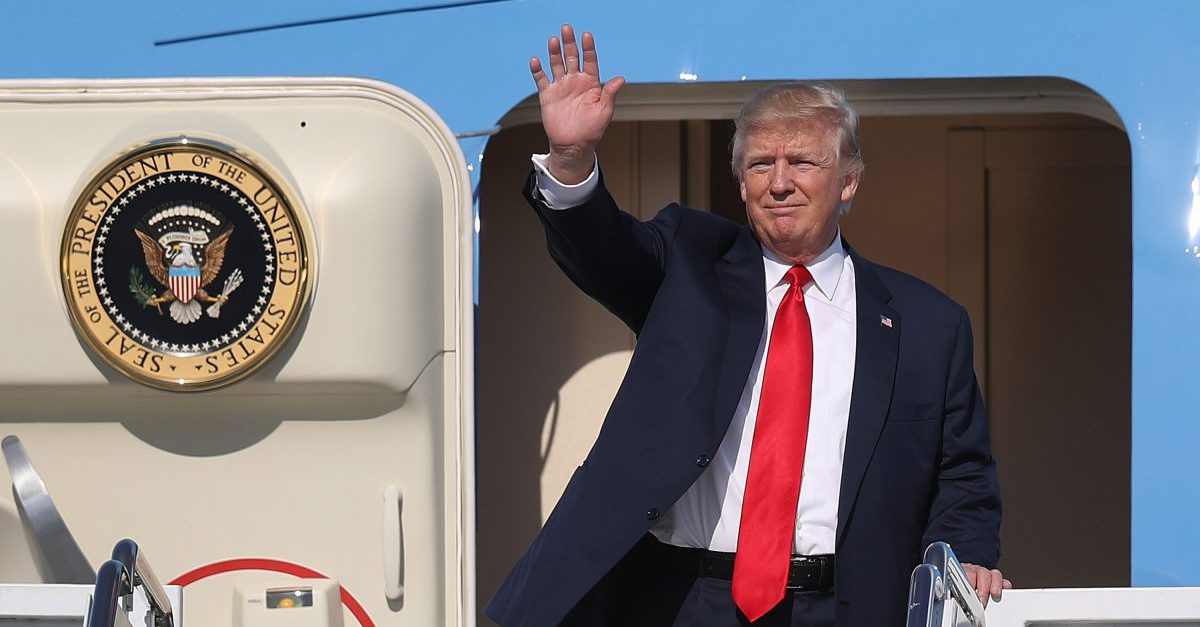On Thursday, I looked at the case for and against using the 25th Amendment to remove President Trump from office, a suggestion appearing with increasing frequency across the political spectrum as Trump’s pile of scandals and accusations continues to grow.
Videos by Rare
The arguments against such a removal are many: it would be interpreted as a coup by his supporters, it strains the intended purpose of the amendment’s provisions, and the motives of many champions of this proposal are less than pure.
The argument in favor is Trump himself. His behavior is erratic and embarrassing, his character — as he insists on personally reminding us daily — is deficient. Trump’s incessant self-aggrandizing, inconsistency, and dishonesty are in many ways perfectly suited to the modern imperial presidency, of course, but that does not make them any less objectionable.
RELATED: Should President Trump be removed from office by the 25th Amendment?
All of which to say: As much as I concluded in Thursday’s post that a 25th Amendment removal is highly unlikely and carries real risks, I entirely see the appeal.
That persistent lure is why I find this thought experiment proposed by Megan McArdle over at Bloomberg Thursday afternoon so valuable. Imagine, she says, if “George W. Bush had started acting like Donald Trump partway into his second term.”
McArdle limits the experiment to the things we know Trump has done (because he’s done them publicly) rather than addressing unproven allegations pertaining to Russia and the FBI:
[L]et’s just look at the things we know our president has done recently, such as summarily firing the head of the Federal Bureau of Investigation by sending a note over to FBI headquarters while the director was out of town. Sending his staff to make claims about the firing that he then idly rebutted on national television, while simultaneously opening himself up to charges of obstructing justice. Getting on Twitter to try to blackmail that FBI director into keeping mum about it all, and in the process inviting congressional subpoenas of the possibly mythical tapes he mentioned in that tweet. Blaming his staff for failing to put out the dumpster fire he started. Saying at a U.S. Coast Guard Academy commencement that no politician in history has been treated as unfairly as him. Going back to Twitter to complain about the appointment of a special counsel to investigate his administration, in the process misspelling “counsel” and proclaiming that “This is the single greatest witch hunt of a politician in American history!”
If Bush had done all this, she reasons, “it would be obvious that some tragic mental impairment had befallen” him. A 25th Amendment removal would be amenable to even his most stalwart defenders, because “the only possible explanation for such a quick succession of stunning lapses in judgment would be a severe stroke, an aggressive brain tumor or some other neurological disaster that had rendered him unfit to continue in office, at least until it could be treated.”
Bush has “given more than his life for his country,” McArdle imagines Americans saying, and for the health of the country and the president himself, he must be given a break.
The trouble is we aren’t dealing with Bush. (There’s a sentence I never thought I’d write.) Behavior that in Bush would clearly evidence a mental break is par for the course in Trump. His supporters elected him after witnessing years of exactly what he’s doing now. It has perhaps escalated to match the unique pressures and scrutiny of the White House, but at the level of character and intellect Trump is basically the president his voters expected him to be.
RELATED: The unwittingly historical presidency of Donald Trump
“It’s one thing to remove a president who is clearly no longer the man (or woman) we elected to the office,” McArdle muses. “But this is what Americans, in aggregate, pulled the lever for. Do his staffers and Congress have the right to step in and essentially undo that choice?”
I stand by my argument yesterday that this is likely to be a moot point: The factors that weigh against Vice President Pence and a majority of either the Cabinet or this Republican-majority Congress pursuing a 25th Amendment plan are heavy, and I believe Trump himself would resign before allowing himself to “lose” by being forced out.
Still, McArdle’s experiment is thought provoking and could be just as fruitfully applied to other recent presidents, like Clinton or Obama. It’s worth a think-through for anyone advocating the 25th Amendment solution.



